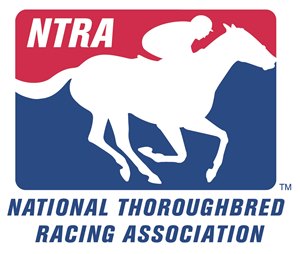NTRA Website Provides Latest Updates on COVID-19


The National Thoroughbred Racing Association has launched a special section to its website devoted to providing updates as tracks and horsemen adjust to guidance on COVID-19.
The site offers the latest guidance from federal, state, and local governments as well as guidance from horsemen's groups and the American Association of Equine Practitioners. In a teleconference March 17, NTRA president and CEO Alex Waldrop encouraged tracks and industry participants to keep up to speed on that information.
Waldrop said track owners, leading horsemen's groups, and other industry leaders met by teleconference March 16.
"We're encouraging tracks to consider themselves as communities," Waldrop said.
The NTRA noted that guidance from all levels of government is important, including local guidance. Waldrop noted there can be big differences from state to state or locality to locality based on what's occurring with COVID-19. Though some tracks have had to cancel racing, Waldrop said, other tracks are in position to continue racing without fans.
"We think that's a great idea for tracks that can do it," Walrop said. "It's an opportunity for racing to distinguish itself as one of the few sports going."
Classic-winning trainer Mark Casse said just because other sports have closed up shop, racing does not necessarily have to follow suit. It falls into its own category.
"We're a little different than other sports. Basketball players are on top of each other. To me, it's an entirely different deal. We've already proven in the last week that we can run. I know owners want to be there, but we've even adjusted there—they'll watch on TV.
"Every sport is different. Just because one sport shuts down, if there's another that shows it can do it in a secure manner, I don't see where it needs to shut down," Casse said.
Waldrop said that when it's possible to continue racing, the sport is well-positioned with its advance-deposing wagering sites to continue to allow people to do their jobs and provide some income to the sport.
"We have to be responsible and take care of our people on the backstretch," Waldrop said. "Whether you're racing or not, you have a community of people taking care of the horses."
Waldrop thanked the efforts of racing channel TVG and the New York Racing Association and its Fox Sports broadcasts—which include racing from non-NYRA tracks—as well as the ADW outlets. He cited NYRA handle numbers that suggested the sport is doing a good job maintaining pari-mutuel handle.
As for tracks that opted to cancel live racing, Waldrop said even when racing is discontinued, the best option is to keep horses stabled at the tracks.
"Moving those horses would bring up a whole lot of other issues," Waldrop said.
To protect workers, tracks will employ social distancing, thorough cleaning, and areas to self-quarantine, Waldrop said. He noted that Keeneland is taking temperatures of workers who enter the grounds. He said tracks can limit access to essential personnel and, rather than putting all the jockeys in the same locker room, provide access to them throughout the facility. Casse said he's asked workers at his training center to practice social distancing, and he noted that a good thing for racing is those workers are not typically working together in close quarters.
Waldrop noted that federal assistance is arriving for workers and may soon arrive for businesses. He said NTRA will advocate in Washington for that assistance for the industry.
Waldrop also noted that the latest science indicates that COVID-19 is not transmitted from humans to horses or horses to humans. He declined to answer a few questions about the racing calendar, noting that a lot of decisions are being made and NTRA's focus is on COVID-19.
